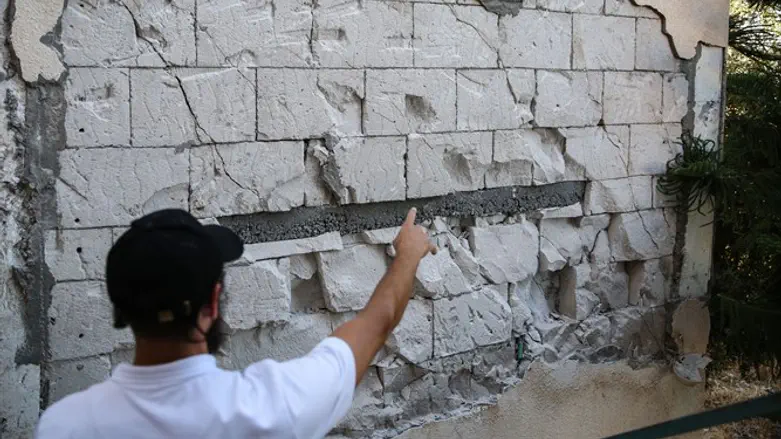
The State Comptroller, retired judge Yosef Shapira, published the report on "State Preparedness for an Earthquake" on Wednesday afternoon, which examines the preparedness of national infrastructures and buildings in the State of Israel.
In light of recent earthquakes in the north, the State Comptroller instructed the publication of the report, which presents an up-to-date picture of the deficiencies in earthquake assessments.
Experts in the field believe that the occurrence of a strong earthquake, with all its severe consequences, is almost certain. Its impact on different regions of the country will be enormous. According to the government-approved preparedness examination, in the event of a major earthquake, Israel could expect 7,000 fatalities, 8,600 people seriously injured, 37,000 people lightly injured, 9,500 people trapped in rubble and 170,000 made homeless.
From July 2017 to February 2018, the State Comptroller's Office examined the preparedness of the country's infrastructure bodies for earthquakes. Completion tests were conducted by May 2018. The audit focused on the preparation phase prior to the occurrence of an earthquake.
The report found that out of the over-70 bridges in Israel considered to be at high levels of seismic risk, only three had been reinforced.
It was also found that of the 1,600 schools which needed to be reinforced against earthquakes, only 50 had been reinforced so far and only 200 were in the planning stages to be reinforced. The structures which require reinforcement are those which were built before 1984, when new construction was required to adhere to current standards of earthquake durability.
"Despite the Ministry of Education's attempts to jump-start the reinforcement project in the local authorities, while allocating a dedicated budget and training engineers and contractors to carry out the work, to date, the minority of schools have been reinforced," the report said.
"Since the implementation of the reinforcement depends on the local authorities and the Education Ministry does not have the authority to oblige them to implement it, full cooperation is required from all the relevant bodies, including the Education Ministry, the local authorities, the steering committee and the Interior Ministry."
The Comptroller also noted that Israel currently possesses one natural gas line, and that the country's electricity supply could be severely disrupted if the line was damaged in an earthquake.
Ben Gurion international Airport could also be severely damaged in the event of a major earthquake.
Other deficiencies found in the report included: Partial reinforcement of hospitals and health institutions - despite a government decision in 2008 to strengthen public buildings, including hospitals, until the completion of the audit, the hospitals were only partially reinforced. Moreover, the Health Ministry has no information on the physical condition and the degree of compliance of the geriatric and nursing institutions, which are attended by thousands of citizens in nursing, rehabilitative and psychiatric departments.
Resistance Fire station buildings - fire stations have a critical role to play in the first response to the earthquake-hit population, both by putting out the fires and by rescuing them. Until the end of the audit period, the Fire Department and the Public Security Ministry had no comprehensive information about the stations that could themselves be hit by an earthquake.
In addition, some 185 police stations, fire stations and MDA and IPS facilities were built before 1980 and are at high risk in the event of an earthquake.
The last major earthquake to strike the State of Israel occurred in 1927. The earthquake, which measure 6.2 on the Richter Scale, caused the deaths of about 500 people.